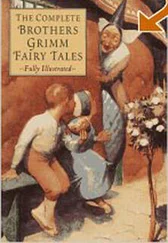Now those calls would never come.
Frieda had only that very moment been explaining how survival could only lie in cooperation. In organization.
Clearly the Nazis understood that too.
Silently, she nodded to the little occasional table by the wall on which her precious telephone stood.
Without a word the SS man went and picked it up, tearing the lead from the wall.
The policeman scribbled his signature on a pad of printed forms, tore the top one off and handed it to Frieda.
‘What’s this?’ she asked.
‘Your receipt,’ the policeman replied.
Frieda turned to the trooper, who was standing holding her stolen telephone. She looked at him intensely.
‘It’s Renke, isn’t it? Thomas Renke.’
The trooper did not reply but it was clear from his eyes that Frieda was right.
‘Your mother brought you to my surgery many times when you were young. Whooping cough, roseola, rubella, measles. Goodness, you had them all. You seem to have turned out well in the end though. Please remember me to Frau Renke.’
The black-clad figure remained silent.
‘Come,’ said the policeman, and the two of them left, SS Trooper Renke taking Frieda’s telephone with them.
Frieda sunk into a chair.
‘Drip drip drip,’ she said.
‘What’s that, my dear?’ her father asked, going over and putting a hand on her shoulder.
‘It’s how they’ve done it, Dad,’ she said, wiping her eyes. ‘Not all at once but one little torture at a time. Ban this, take that. For years even you were sure they would not go so far. But one drip at a time they’ve gone further and further. Further than we ever dreamt they would. Now we are not even to be allowed to communicate with each other. How far will they go? I wonder. Where will this end?’
PAULUS HAD BEEN expecting it.
Every day since he had enlisted he had been on his guard. Certainly he was buried deep, the Nazi military machine was vast, there were millions of Germans now in uniform, and of course that uniform was the very last one anyone might expect the man they had known as Paulus Stengel to be wearing. Nonetheless, amongst those millions were some who would know him, whatever he wore. And who knew what he really was.
Paulus had been alert to such an encounter since the first day he had swapped identities with his brother, and now that moment had arrived.
He was sitting in a tiny country bistro about five kilometres from Calais, having ridden there on a motorcycle on an evening pass out. He had been in the process of writing a letter to Dagmar when he became aware that he was being observed.
No one called out his name or tried to speak to him but something told him there were eyes upon him. That he was being discussed. Perhaps it was a slight change in the tone of the murmuring that emanated from the only other occupied table in the room. Or else simply that inexplicable thing that people call the sixth sense.
Whatever it was, Paulus knew.
He had not particularly noticed the men coming in and taking their table. He had been too focused on trying to compose his letter. A letter in which he was struggling to give some hint to the woman he loved of the nightmare of being a soldier in Hitler’s armies.
The nightmare of being a member of the Waffen SS. A soldier in the very regiment that bore the Führer’s name: the division Leibstandarte Adolf Hitler .
The long-awaited military storm in the west had broken on 10 May when the German war machine smashed the Dutch border, swatting aside the feeble defences in an hour. So fast was their progress that at first it had seemed to Paulus as if he might even get away without personally shooting at the enemy.
The Leibstandarte Adolf Hitler reached Rotterdam in two days and The Hague in four, after which the Dutch surrendered and another country and its Jews fell into Nazi clutches. Without pausing for breath, Paulus’s division had then swung on into France.
Paulus confessed in his letter that he had actually found the advance exciting. It was a heady experience to storm across sund-renched countryside in pursuit of a retreating foe.
They had chased the British all the way to Dunkirk and would, in Paulus’s opinion, have captured the whole of the expeditionary force had they been allowed to proceed. This was also the opinion of every soldier in his division, although it was one that had to be expressed carefully as the inevitable conclusion was that the greatest warlord in all history had made a stupid mistake.
It was in the approaches to Dunkirk that Paulus had witnessed an event about which he could not write but which had been on his mind ever since it occurred. The Leibstandarte had just taken the town of Wormhout, a mere ten miles from the beaches of Dunkirk. A lot of prisoners had been captured and Paulus had been present when some men from the 1st Division had rounded up a group of about a hundred Tommies and herded them into a barn. Then instead of making them prisoners of war, as they were required to do under the Geneva Convention, they had thrown grenades into the flimsy structure. The few shattered British who managed to crawl out of the carnage were shot and bayoneted on the ground.
It was this incident that Paulus really wanted to put down in his letter to Dagmar, along with his terrible fears that one day he himself would be called upon to take part in such an outrage. He was prepared to fight for Germany, fate had put him in an impossible position on that score and he felt he had no choice. But he knew that he could not commit cold-blooded murder.
It was while he considered how he might hint at these tortured thoughts in his letter without alerting the censor that he had become aware he was being observed.
They were Wehrmacht. He could see their boots beneath the table opposite without raising his head from the page. Big hobnailed jackboots, dusty and cracked. That made them army; no trooper in the Waffen SS Leibstandarte would have gone out on furlough without first shining his boots.
Paulus resisted the urge to look up. So far he judged they had not had clear sight of him. He knew his head had been partially bowed over the letter he was writing since they had entered the bar.
The exit to the bar, however, lay beyond the table on which the soldiers were sitting, so he could not get out without whoever it was getting a considerably better look at him than the one they were currently enjoying. Paulus therefore had two choices. He could either keep his head bowed and hope they would shrug their suspicions off and leave. Or he could brazen it out and leave at once, walking straight past them.
Paulus counted three sets of boots beneath the table. Not good odds.
The whispering continued.
The feet began to fidget.
It was clear to Paulus that if he waited for them to make a move he would be massively disadvantaged. He needed to take the initiative and time had almost run out. The chair behind one of the sets of boots was being pushed back. One of them had decided to act. To come across and challenge him. Paulus had seconds left to take control. If he waited a moment longer one of three would be in his face with the other two behind.
In a single and sudden movement, Paulus gathered up his letter, slammed some currency on the table and got to his feet. Heading straight for the door he flicked his eyes once to look at the men he feared.
One glance was enough.
The years fell away.
It was Emil Braas. The boy who had tried to turn the old soccer team against Paulus and Otto in the changing hut on their last day with the youth club.
‘ Jude! Jude! ’ they had chanted to the banging of a stick on a dustbin lid.
Читать дальше












